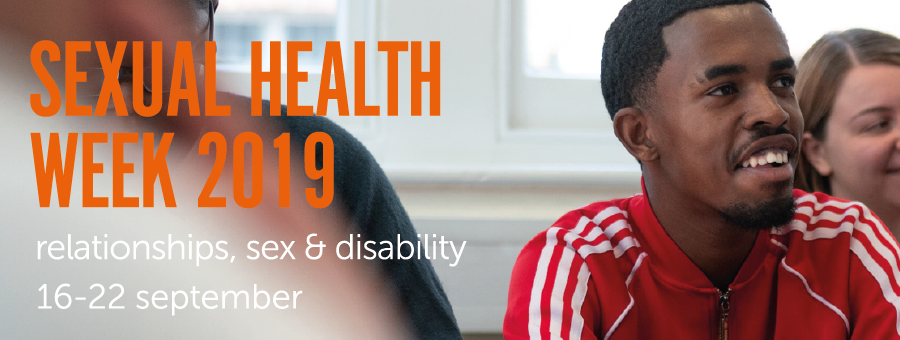 ×
×
 ×
×


The theme for #SHW19 was relationships, sex and disability. Brook wants a society where all young people are free to be themselves. We fight tirelessly every day for young people’s right to quality education and sexual health services so that they can take control of their wellbeing, enjoy healthy relationships and explore their identities. We are committed to changing attitudes, challenging prejudices and championing equality so that all young people can lead happy, healthy lives.
Thank you for supporting this campaign. We know there is still a long way to go before the dialogue around sex, relationships and disability is normalised. Please continue to share the resources below with young people, with colleagues and on social media. If you or your company would like to support sexual health week 2020 please get in touch!
Personally it would help a lot if disabled people and the use of mobility aids was normalised and included in advertising. Give me people in wheelchairs in advertising for sex toys, include disabled voices on panels about sex education. The more we’re seen the less taboo it becomes." Rachelle, 24
Young people with a learning disability are being denied sex-positive relationships and sex education due to societal stigma
Read Brook’s sexual health week 2019 press release
A Department for Education spokesperson said:
“I fully support Brook’s efforts to end the stigma surrounding sex and disability. We are very clear in the new guidance, that Relationships and Sex Education must be accessible for all pupils.
“We are playing our part to ensure young people are educated about sex and relationships by making it compulsory for all secondary schools from September 2020.”
Brook’s Sexual Expression resource including activities and image cards
This resource is an updated excerpt from Brook’s 2010 resource Living your Life, which was produced with extensive support from David S Stewart and Sarah Bustard from Oak Field School and Sports College in Nottingham. Living your Life was produced in collaboration with young people and adults with learning difficulties and disabilities, and staff working in education, health and social care settings.
Brook and Mencap guide for healthcare professionals on making services more accessible
Brook has partnered with IPPF and Enhance the UK to launch 'Let's Talk About...', a series of short films made with young people, addressing key sexual health topics including relationships, sex and disability.
Let's Talk About...
We’ve teamed up with Fettle to donate a free STI home sampling kit to disability charity, Enhance the UK, for each kit sold on Fettle between 16-22 September. Be part of the movement to normalise sex and disability. Take a kit to give a kit. Find out more at Fettle and follow #TakeOneGiveOne.
Read Brook's position statement on sexuality, relationships and disability
We are proud to relaunch these ten British Sign Language films created in partnership with SignHealth on various topics relating to relationships and sex
As highlighted by learning disability charity, Mencap, people with a learning disability face multiple barriers when it comes to developing intimate or sexual relationships, and this includes a lack of adequate relationships and sex education (RSE). Without RSE, young people are denied the skills and knowledge to have healthy and fulfilling friendships and relationships and to understand and explore their own sexuality.
Teachers also face barriers when supporting young people with disabilities. When the Sex Education Forum surveyed teachers of RSE, only 29% said they had received training in the subject and 99% wanted practical advice on meeting the needs of pupils with SEND.
Furthermore, disability charity Enhance the UK say that they talk to disabled people every day who are struggling to access basic sexual health services such as STI screening, and that targeted relationships education for young disabled people is practically non-existent.
Watch this short film produced in partnership with IPPF and Enhance the UK: